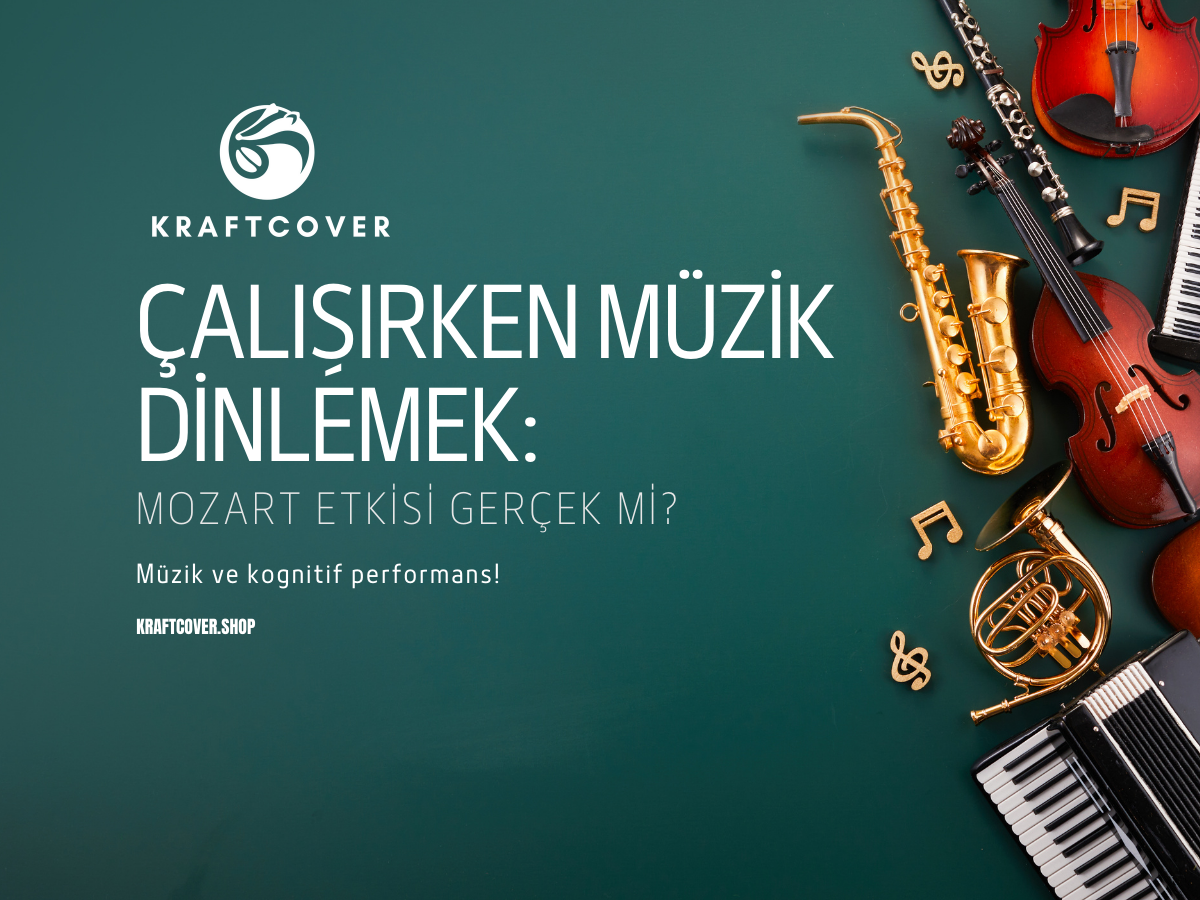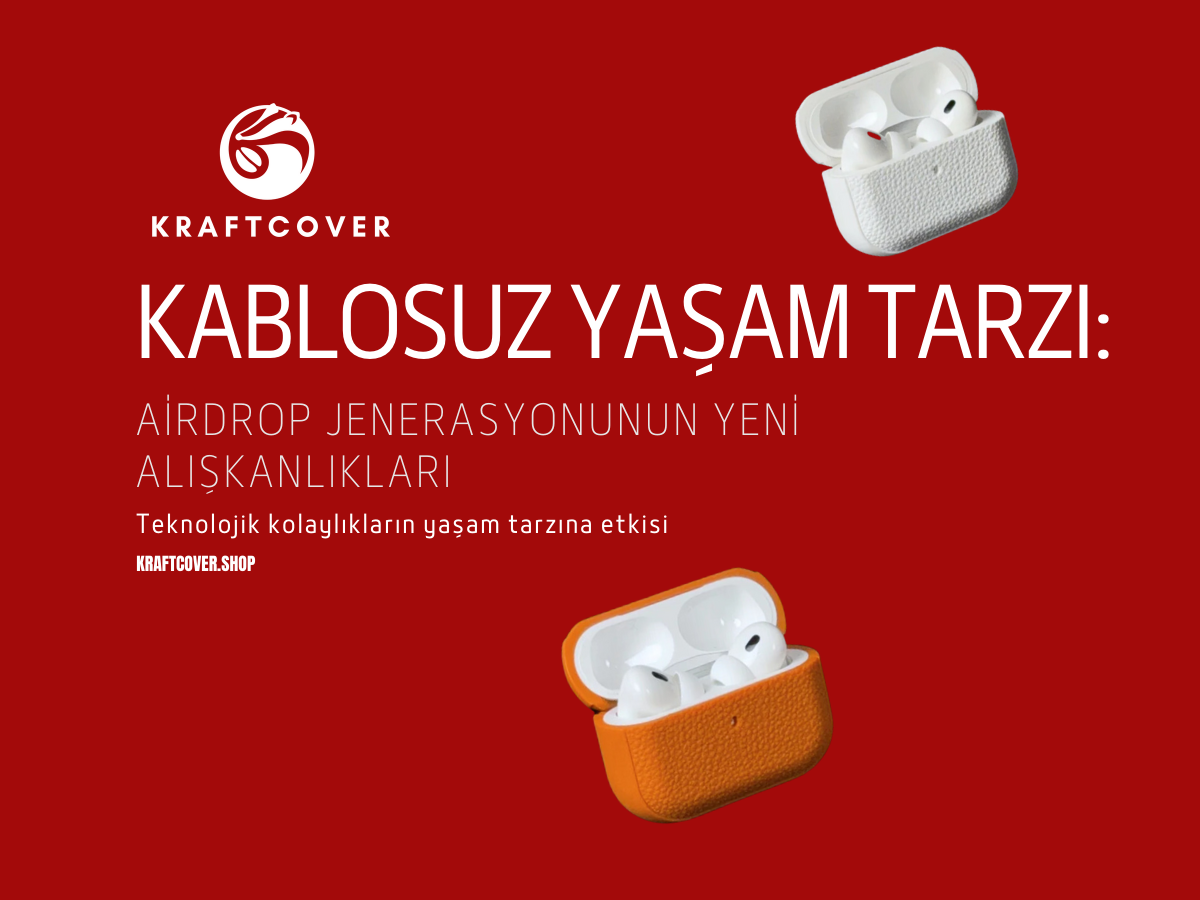Bir yandan projelerinizi yetiştirmeye çalışırken bir yandan da kulaklıklarınızdan gelen müzikle mi motive oluyorsunuz? Belki de herkesin dilinde olan “Mozart Etkisi” size daha zeki hissettirdi! Ancak, müziğin çalışma performansı üzerindeki etkileri gerçekten bu kadar basit mi? Gelin, bu konuyu bilimsel verilerle birlikte masaya yatıralım.
Mozart Etkisi Nedir?

Mozart etkisi, 1993 yılında yapılan bir araştırmaya dayanıyor. Araştırma, Mozart’ın bir sonatını dinleyen katılımcıların, belirli bir süre boyunca mekânsal düşünme ve problem çözme becerilerinde artış gösterdiğini buldu. Bu sonuçlar, “Mozart dinlemek zekayı artırır” algısını popüler hale getirdi. Ancak bu etkinin kısa süreli olduğu ve genel bir zekâ artışı yerine belirli kognitif görevlerde geçerli olduğu daha sonra açıklığa kavuştu.
Bilimsel Araştırmalar Ne Diyor?
Çalışırken müzik dinlemenin etkisi, kişisel tercihlere, yapılan işin türüne ve müziğin kendisine bağlıdır. İşte bazı çarpıcı bulgular:
- Odaklanmayı Artırabilir: Enstrümantal müzik, dikkat dağınıklığını azaltarak odaklanmayı artırabilir. Özellikle Barok müzik gibi düzenli ritimlere sahip parçalar, beyin dalgalarını düzenler.
- Yaratıcılığı Destekleyebilir: Yaratıcı işler yaparken, hafif tempolu ve sözsüz müzikler, beynin farklı bölgelerini aktive ederek yaratıcı düşünceyi destekler.
- Bilişsel Performansı Olumsuz Etkileyebilir: Çalışma sırasında sözlü müzik dinlemek, dil merkezini meşgul ederek okuma ve yazma gibi dil ağırlıklı görevlerde performansı düşürebilir.
Müzik Türüne Göre Çalışma Performansı
Hangi tür müziğin hangi işlerde faydalı olduğunu bilmek, çalışma ortamınızı optimize etmek için önemlidir.
1. Klasik Müzik ve Mozart Etkisi
- Nerede Faydalı? Analitik düşünme, matematik problemleri çözme veya odaklanma gerektiren işlerde.
- Neden? Mozart’ın eserleri gibi düzenli ve tekrarlayan ritimler, beyin dalgalarını uyumlu hale getirerek zihinsel süreçleri hızlandırabilir.
2. Doğa Sesleri ve Ambient Müzik
- Nerede Faydalı? Yaratıcı projelerde veya meditasyon benzeri derin düşünme gerektiren işlerde.
- Neden? Doğa sesleri ve hafif ambient müzikler, stresi azaltarak zihinsel berraklık sağlar.
3. Lo-fi ve Chillhop
- Nerede Faydalı? Rutin işler, veri girişi veya grafik tasarım gibi hafif dikkat gerektiren görevlerde.
- Neden? Lo-fi müzik, arka plan gürültüsünü bastırarak sakin bir atmosfer yaratır.
4. Pop ve Sözlü Müzik
- Nerede Sakıncalı? Yazı yazma veya okuma gibi dil becerileri gerektiren işlerde.
- Neden? Şarkı sözleri, beynin dil merkezini meşgul ederek dikkat dağınıklığı yaratabilir.
Müzik Çalışırken Gerçekten Faydalı mı?
Çalışma sırasında müzik dinlemenin etkisi kişiden kişiye değişir. Bazıları için müzik odaklanmayı artırırken, bazıları için dikkat dağınıklığı yaratabilir. Bu noktada birkaç soruyu kendinize sorarak müziğin size uygun olup olmadığını belirleyebilirsiniz:
- Yaptığınız İşin Türü Ne? Eğer çok fazla odaklanma gerektiriyorsa, sözsüz müzikleri tercih edin.
- Müzikten Etkilenme Dereceniz Nedir? Kolayca dikkatiniz dağılıyorsa, sessiz bir ortamı tercih etmek daha iyi olabilir.
- Kendi Zevkinizi Keşfedin: Bazı insanlar klasik müzikle daha üretken hissederken, bazıları için modern enstrümantal müzikler daha etkili olabilir.
Çalışırken müzik dinlemek için yanınızda hem kulaklık hem de diğer aksesuarlarınızı taşımanız mı gerekiyor? Snappack Teknoloji Taşıma Çantası (Buğday), tüm teknolojik ihtiyaçlarınızı düzenli bir şekilde yanınızda bulundurmanızı sağlar. Şık ve fonksiyonel tasarımıyla çalışma rutininizin en pratik yardımcısı olacak.
Mozart Etkisini Test Etmek: Kendinizi Keşfedin
Mozart Etkisi’nin gerçekten işe yarayıp yaramadığını keşfetmek için bunu bir deney haline getirebilirsiniz. İşte adım adım rehber:
- Görevi Belirleyin: Örneğin, bir rapor yazmak, bir proje üzerinde çalışmak veya problem çözmek.
- Müzik Türünü Seçin: İlk etapta Mozart’ın eserlerini dinleyin. Daha sonra farklı müzik türlerini deneyerek etkilerini karşılaştırın.
- Performansınızı Değerlendirin: Hangi müzikle daha iyi performans gösterdiğinizi not alın.
Bu yöntemle hem müziğin sizin üzerinizdeki etkisini anlayabilir hem de çalışma ortamınızı daha verimli hale getirebilirsiniz.
Çalışma Ortamınızı Müzikle Optimize Edin
Müziğin etkisini artırmak ve odaklanmayı kolaylaştırmak için doğru ortamı yaratmak önemlidir. İşte birkaç pratik öneri:
- Kulaklık Kullanın: Gürültüyü engelleyen kulaklıklar, çalışma sırasında daha net bir ses deneyimi sunar.
Favori müziğinizin keyfini çıkarırken AirPods’unuzu korumak da önemli. Graphite Gri AirPods Kılıfı, dayanıklı yapısı ve minimalist tasarımıyla AirPods’unuzu çizilmelere karşı korurken stilinize sofistike bir dokunuş katıyor.
Son Söz: Mozart Etkisi Gerçek mi?
Mozart Etkisi, tamamen gerçek olmasa da müzik dinlemenin doğru bağlamda kullanıldığında üretkenliği artırabileceği bir gerçek. Ancak bu, kişisel tercihlere ve çalışma türüne bağlıdır. Kendi deneyiminizi yaparak hangi müziğin size en çok fayda sağladığını keşfedin.
Unutmayın, müzik bir araçtır ve doğru şekilde kullanıldığında odaklanmanızı ve yaratıcılığınızı artırabilir. Şimdi sıra sizde: Çalışırken en sevdiğiniz müzik nedir? 😊



